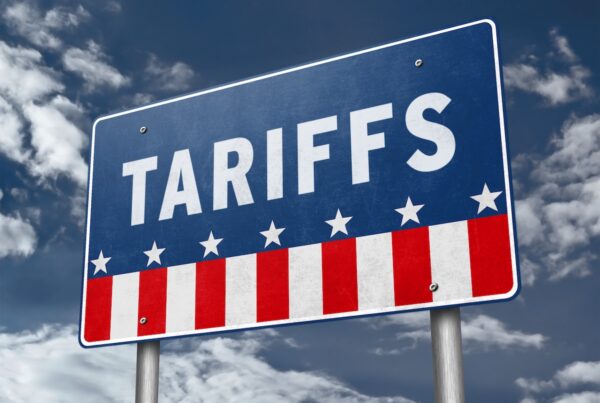Los Angeles Wildfires – Update on Portfolio Impact
To download a PDF version of this update, click here.
In January 2025, Los Angeles experienced several significant wildfires which caused widespread destruction and displacement of local residents. First and foremost, our thoughts go out to all those affected and sincere thanks to all those providing support.
The direct damage from the wildfires to the Resolution Capital Global REIT Portfolio (the “Portfolio”), at this point, appears to be very limited. The Portfolio has approximately 5% exposure to the broader Los Angeles market spanning residential, office, self storage, industrial and healthcare sectors, with less than 2% located in wildfire affected areas. As of today, we do not believe the Portfolio holdings have experienced any material loss as a result of the wildfires.
The wildfires were located largely outside of major business areas. An estimated 15,000 structures were damaged or destroyed, with most of the direct physical impacts occurring in residential neighbourhoods. Approximately 10,000 homes were destroyed, along with community structures including schools, local shopping and other neighbourhood services and institutions.
The number of people displaced from their homes is significant, with estimates ranging widely from 50,000 to 100,000. The rebuilding process is expected to be herculean, and likely to take years. Damage assessment and cleanup could take about a year, and perhaps longer, depending on environmental considerations. Various government entities are expected to enact legislation to facilitate the rebuilding process by streamlining approvals and relaxing some existing environmental oversights, although the specifics are yet to be determined.
Below we consider the impacts for various Portfolio holdings in the Los Angeles market.
Rental Housing: Among the immediate ramifications of the wildfires is resident displacement and a shortage of living accommodation. As a result, rental housing across a range of formats is likely to see increased demand and higher occupancy levels. During the fires, a State of Emergency was declared for Los Angeles County, which enabled California’s existing anti-gouging regulations to take effect. These rules expressly prohibit business owners and landlords from increasing prices by more than 10% for a range of items, including rent. Though these rules are scheduled to end in March, there is a good likelihood they will be extended for the foreseeable future.
The Portfolio has investments in three residential REITs with assets in the greater Los Angeles market. Apartment REITs Equity Residential (EQR) and Essex Property Trust (ESS) each derive 17% of their NOI from LA, and single family REIT, Invitation Homes (INVH) generates 11% across the broader metro area. All portfolios should experience some degree of revenue growth primarily from higher occupancy.
Self Storage: Self storage operators could be more adversely impacted by anti-gouging laws which otherwise affect their regular pricing strategy. In the U.S., self-storage REITs typically discount entry rents significantly to attract new tenants, and they then pursue sizable rent increases of 15-20% every 4-6 months to recoup the discounted initial rent over the ensuing 12-18 months. These types of rent increases would likely be prohibited by the anti-gouging restrictions, although the California Self Storage Association cautions that it depends on how the rental contract is written. In past State of Emergency instances, self storage operators have tempered their rent increases considerably, and we expect this would be the case this time too. These rent restrictions will likely endure for several quarters, or even years. As an example, in late-2018, wildfires led to rent increase restrictions for self storage that were not removed until January 2022.
Additionally, the anti-gouging rules have gone into effect at a time when rents were near their annual low points in January, as compared to the peak leasing season (May – September) when rents would often be 15-20% higher. Self storage operators in Los Angeles stand to realize lower peak rents should the anti-price gouging rules remain in effect through the seasonally stronger summer period.
Portfolio holdings Extra Space (EXR) and CubeSmart (CUBE) generate 11% and 3% of NOI respectively from Los Angeles. Public Storage (PSA), which is not held in the Portfolio currently, has a higher proportion of properties in LA with 17% of NOI from this market. At this point, none of the self storage operators have commented on property damage from the fires.
Office: The Resolution Capital Portfolio has exposure to Los Angeles offices via Boston Properties (BXP) and Kilroy Realty (KRC), and neither was directly impacted by the wildfires. In fact, vacant office space may see increased demand coming from users whose buildings were destroyed. For instance, a local broker commented that schools in the Pacific Palisades were considering leasing office space in buildings on the west side, such as in neighbouring Santa Monica.
Industrial: To date, only one REIT, Los Angeles industrial specialist, Rexford Industrial Realty (REXR) has officially noted that there was “no damage of its properties and does not anticipate unfavourable impacts to the Company’s operating results or financial condition due to the wildfires in Los Angeles County.” Rexford owns a US$15 billion portfolio that includes 720 buildings totalling 50 million sq. ft. of industrial properties in Southern California. Rexford accounts for less than 1% of the Resolution Capital Portfolio.
Other: Damage to other listed REITs’ portfolio is believed to be minimal. Ventas (VTR), a healthcare REIT and Portfolio holding, owns one seniors housing property, Atria Park of Pacific Palisades, that closed as a result of the wildfires. Fortunately, all of the residents in the assisted living facility were evacuated safely, and while the asset miraculously still stands, it is unusable with smoke damage. This asset represents <0.5% of VTR’s NOI, and we expect insurance to cover property damage and business interruption.
Looking ahead, the road to rebuilding will be complex, and residents’ willingness or abilities to undertake a multiyear rebuilding program could vary. Some residents may relocate to other metro areas in California or even out of state – pulled there by replacement housing availability and the desire for stability for families as well as employment opportunities that were lost with the fires. In Los Angeles, building design and codes should be revisited to improve resiliency to changing environmental conditions in the future. We anticipate the rebuilding process to create heightened demand for construction materials and labour, and for this to overlap with the build-up to the Olympics in Los Angeles in 2028. Inflation pressures from fire-related rebuilding will underscore construction activities across all sectors and asset classes, including commercial and infrastructure projects, with price pressure lasting perhaps for much of the coming decade. Commercial landlords with existing operating portfolios will subsequently benefit from elevated construction costs.
The Los Angeles wildfires will likely go down as the largest commercial insurance loss due to fire in U.S. history. Insured losses are projected to be about $30 billion, and uninsured losses could be 2.5-3x this amount. Wells Fargo estimates that 85% of the insured loss will be in the homeowners market and 12.5% in the commercial property segment. Looking ahead, property insurance costs will surely increase in the affected areas, with much of the impact to be borne by the personal property market. Commercial landlords will surely be affected as well, although many have portfolio level policies where underwriting benefits from greater geographic diversification.
Most listed REITs were fortunate to have largely avoided any material direct physical impact from the fires. Their existing operating portfolios should see steady demand from relocations, need for temporary accommodations and an extended reconstruction period.
Further information
Contact Resolution Capital Client Services team at clientservices@rescap.com
Disclaimer:
This communication is prepared by Resolution Capital Limited (‘Resolution Capital’) (ABN 50 108 584 167, AFSL 274491). Pinnacle Investment Management Limited (ABN 66 109 659 109, AFSL 322140) and its associated entities (collectively ‘Pinnacle’) provide distribution and responsible entity services to Resolution Capital.
Resolution Capital and Pinnacle believes the information contained in this communication is reliable, however, no warranty is given as to its accuracy and persons relying on this information do so at their own risk. This communication is general information only and does not take into account your objectives, financial situation or needs. Any persons relying on this information should obtain professional advice before doing so and consider the appropriateness of the information having regard to your specific circumstances. To the extent permitted by law, Resolution Capital and Pinnacle disclaim all liability to any person relying on the information contained in this communication in respect of any loss or damage (including consequential loss or damage), however caused, which may be suffered or arise directly or indirectly in respect of such information. Unauthorised use, copying, distribution, replication, posting, transmitting, publication, display, or reproduction in whole or in part of the information contained in this communication is prohibited without obtaining prior written permission from Resolution Capital.
Resolution Capital is an affiliate of Pinnacle Investment Management Ltd. Pinnacle Investment Management (UK) Ltd is an appointed representative of Mirabella Advisers LLP (FRN 606792), which is authorised and regulated in the UK by the Financial Conduct Authority.



